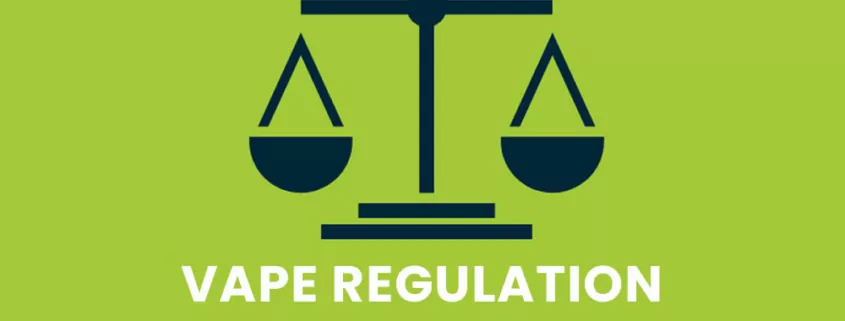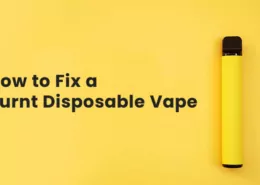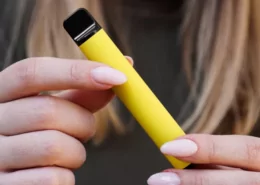How Vape Use Is Regulated In Different Countries
Vape use, which has become increasingly popular worldwide, faces diverse regulations depending on the country. In this article, we will explore how different countries have addressed the issue of vaping, including bans and restrictions on sale, advertising, and consumption.
What are Vapes?
Vapes, also known as electronic nicotine delivery systems (e-cigarettes), are electronic inhalation devices that convert a special liquid, usually containing nicotine and flavorings, into an aerosol. These devices gained popularity in the second half of the 2000s as an alternative to traditional smoking. Despite the reduced presence of carcinogenic tars, vapes still present health risks, and nicotine addiction remains a concern.
Global Overview of Vape Regulations
According to a 2021 WHO report, 32 countries have banned the sale of vapes, while 79 countries have implemented various legislative measures to regulate their use. These measures include bans on use in closed public spaces, health warnings on packaging, and advertising restrictions.
Europe: Vape Regulations
General Rules
In Europe, vaping is generally not banned. The Vatican is an exception, where the purchase, sale, and use of e-cigarettes are illegal. Various countries have different regulations, such as restrictions on use in enclosed public spaces, educational institutions, hospitals, or public transport.
Packaging and Advertising
European countries often require a list of ingredients on vape packaging, accompanied by warnings about health risks and addictiveness. Advertising e-cigarettes is usually prohibited, and they can only be sold to individuals over the age of 18.
Country-Specific Regulations
- Norway: Sale and importation of nicotine-containing e-vaporizers are currently banned, but new legislation taking effect in July 2023 will permit the sale of certain devices under a license from the Ministry of Health.
- Lithuania: Since July 2022, the sale of flavored e-cigarettes and e-cigarette refill liquids has been banned.
- America: Vape Regulations
United States
In the United States, states and municipalities regulate electronic smoking systems. As of February 2023, most states have banned e-cigarette use in restaurants, bars, workplaces, and in some cases, educational and healthcare facilities and parks. Some regions have also banned the sale of flavored e-cigarettes and online sales.
Read more:
Vaping Laws in US by States
Canada
Canadian provinces and territories handle e-cigarette regulation. Some examples include:
- Ontario: Total ban on vape advertising in convenience stores and gas stations.
- Quebec: Display of e-cigarettes in storefronts frequented by minors is illegal.
- Prince Edward Island: Sale of e-cigarettes to anyone under 21 is prohibited.
- Federal: Advertising visible to minors is banned, and a health warning is required.
Read more:
Vaping Laws in Canada
Latin America
- Argentina: E-cigarettes have been banned since 2011, with further restrictions on distribution, marketing, and advertising implemented in 2016.
- Brazil: Vaping has been illegal since 2009, with additional bans on marketing, importing, and advertising electronic smoking devices.
- Mexico: As of May 31, 2022, e-cigarettes are illegal, with distribution and marketing prohibited regardless of origin.
- Panama: A law passed in June 2022 bans the use, importation, and sale of e-cigarettes, vaporizers, and tobacco heaters, with or without nicotine.
Asia and Australia
Japan
- E-cigarettes containing nicotine banned since 2010
- Nicotine-free devices unregulated but restricted to designated areas
China
- Online sale of e-cigarettes banned since November 2019
- Distribution of flavored devices banned since October 2022
Read more:
Understanding China’s Vape Regulations
South Korea
Vapes cannot be sold near schools
India
Complete ban on manufacture, import, export, transportation, storage, and advertising since September 2019
Thailand
E-cigarettes banned since 2014
Singapore
Complete ban on all devices simulating tobacco smoking since February 2018
Brunei
Sale of e-cigarettes banned since 2010
Philippines
Sale of e-cigarettes restricted to those 18 and older since July 2022
Cambodia
Sale, use, and importation of e-cigarettes illegal since 2014
Middle East and North Africa
Bahrain, Iran, Iraq, Jordan, Lebanon, Oman, Qatar, Syria, and Turkey
- Import and sale of e-cigarettes prohibited
- Production also prohibited in Iran, Iraq, Jordan, Syria, and Qatar
- Personal use not banned
UAE, Saudi Arabia, Egypt, and Kuwait
Bans on e-cigarette sales lifted in recent years
Australia
Prescription required for e-cigarettes containing nicotine since October 2021
Read more:
Vaping Laws in Australia
Post-Soviet Space
Georgia
Anti-tobacco law banning smoking of both regular and electronic cigarettes in public places since May 2017
Kazakhstan
- Vape smoking allowed only in designated places since July 2020
- Sale of cigarettes, sticks, and smoking liquid to those under 21 prohibited
Kyrgyzstan
- Ban on smoking cigarettes, e-cigarettes, and hookahs in public spaces since October 2021
- Ban on production, import, and circulation of vaping products since January 2022
Armenia
- Ban on advertising and public display of cigarettes and vapes in commercial and catering facilities since January 2022
- Ban on use of all tobacco products and substitutes in catering facilities, hotels, shopping centers, and closed working areas since March 2022
Ukraine
Ban on e-cigarettes in public places, advertising, and sale to those under 21 since July 2022
Belarus
Ban on sale of e-cigarettes to minors since 2022
Africa
Sub-Saharan Africa
- Most countries have unclear regulations
- Some have bans on sale, importation, production, or use in public places
- Kenya, Republic of Congo, Cote d’Ivoire, and Togo restrict sale to minors
South Africa
New anti-tobacco legislation expected to pass in 2023
Conclusion
Vape use is regulated differently across the globe, with varying degrees of restrictions on sale, advertising, and consumption. As the vaping landscape continues to evolve, it is essential to stay informed about the regulations in your country or region.
- Vaping Laws in New Mexico: Guide of Age, Flavors, Tax & Rules - June 28, 2025
- Vaping Laws in New Hampshire: A Comprehensive Guide for You - June 27, 2025
- Paraguay Approves Bill to Regulate Vapes with Low Tax Rate - June 27, 2025








